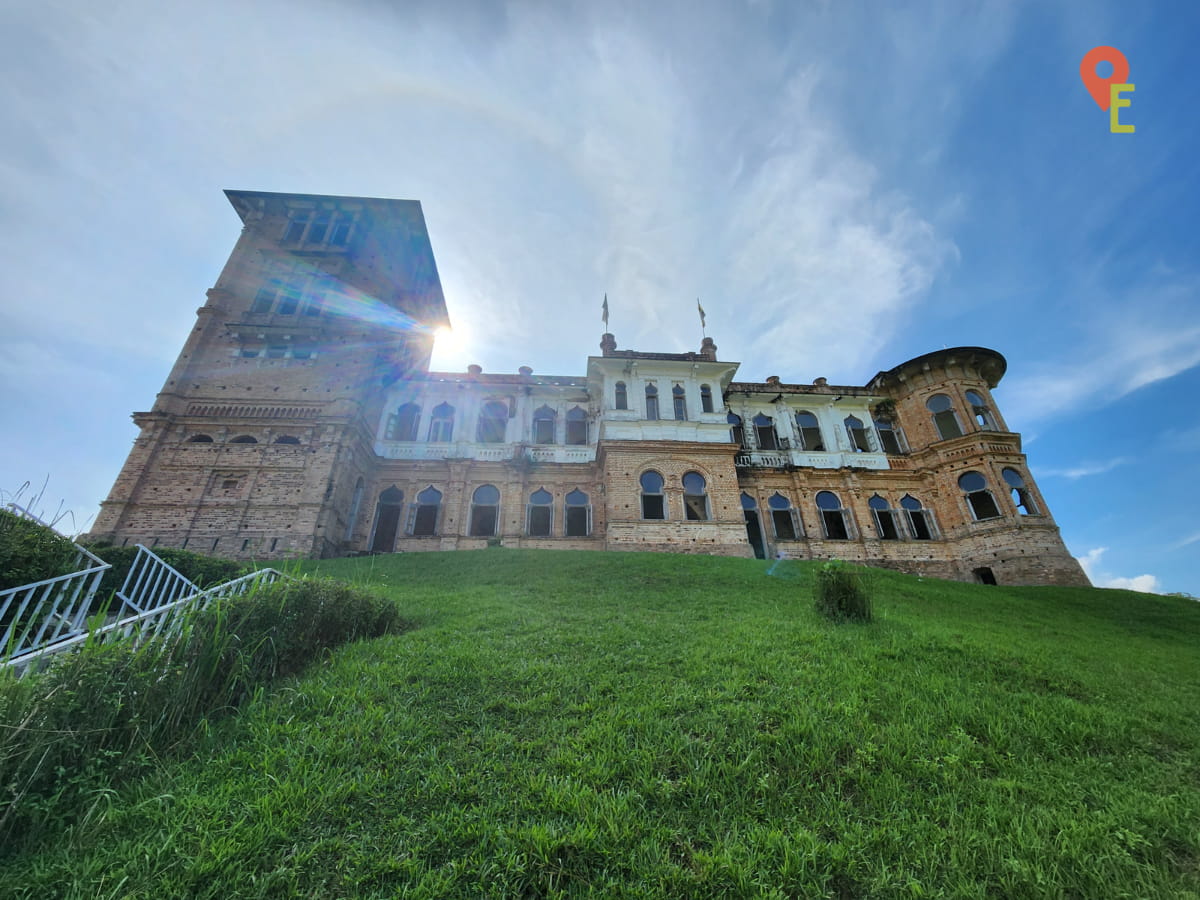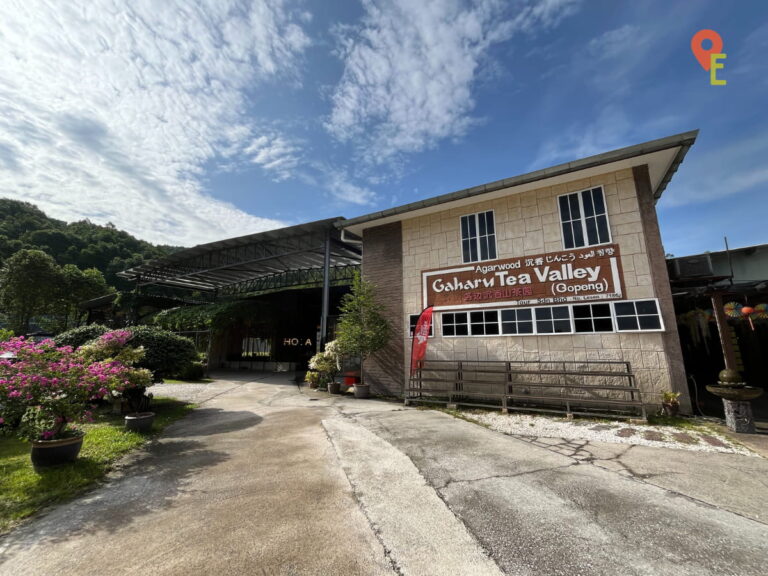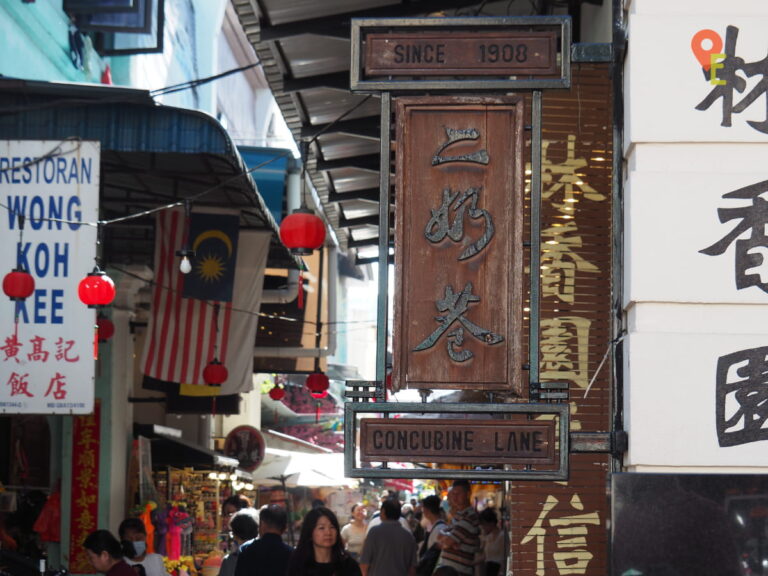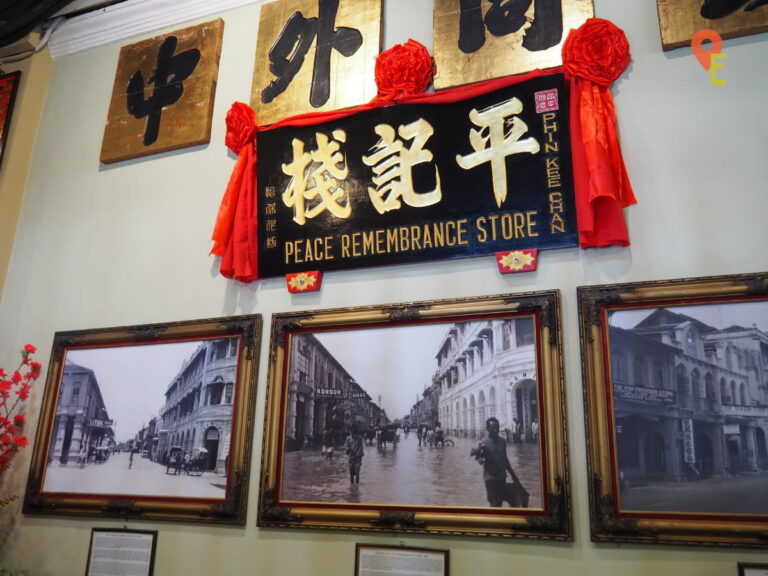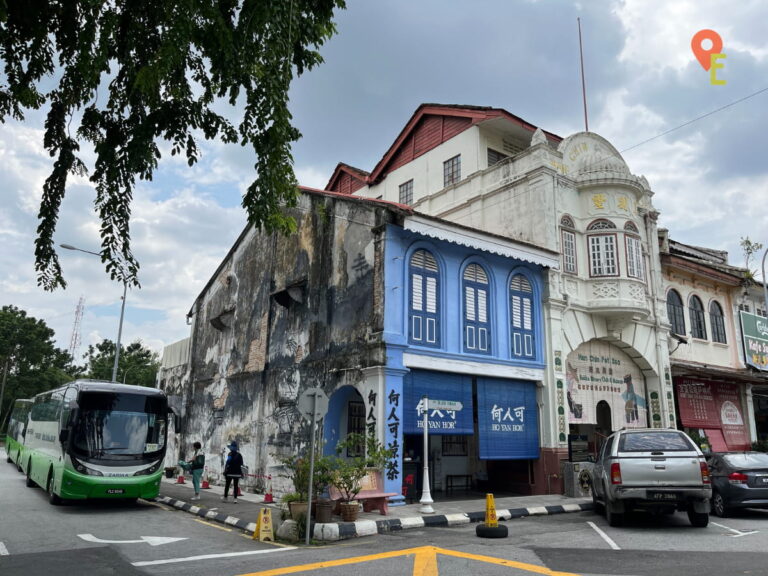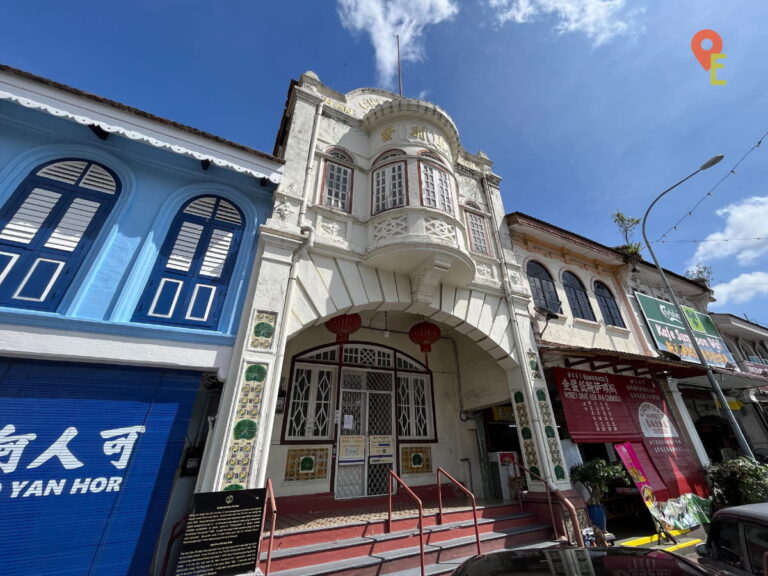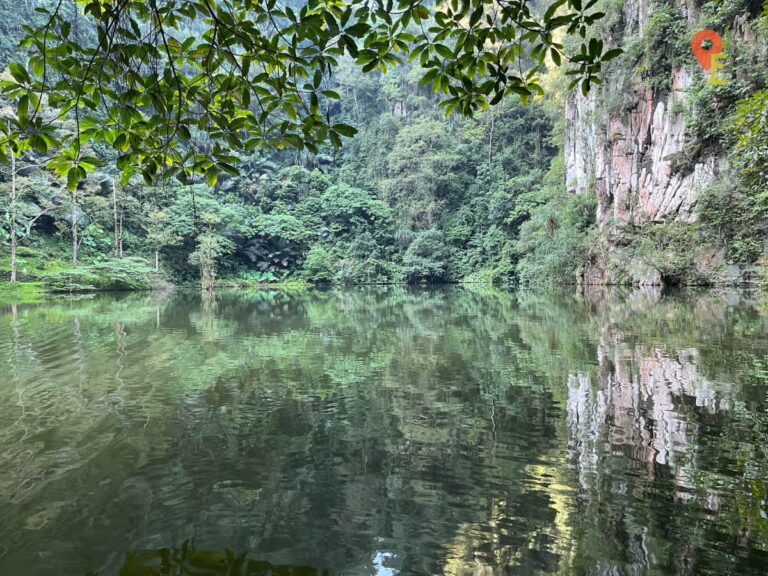Kellie’s Castle – A Stunning Historical Landmark Outside Ipoh
Kellie’s Castle remains a popular tourist attraction for a reason. It’s only 30 to 40 minutes’ drive out from Ipoh.
And there’s nothing in Ipoh that looks like it with its unique architecture that fuses different styles.
But if you want to know what else you can see here, keep on reading.
Entrance Fees
This is a very affordable place to explore with your family. The entry fee is RM5 per adult and RM3 per kid for Malaysians. For foreigners, the cost is RM10 per adult, and RM8 per kid.
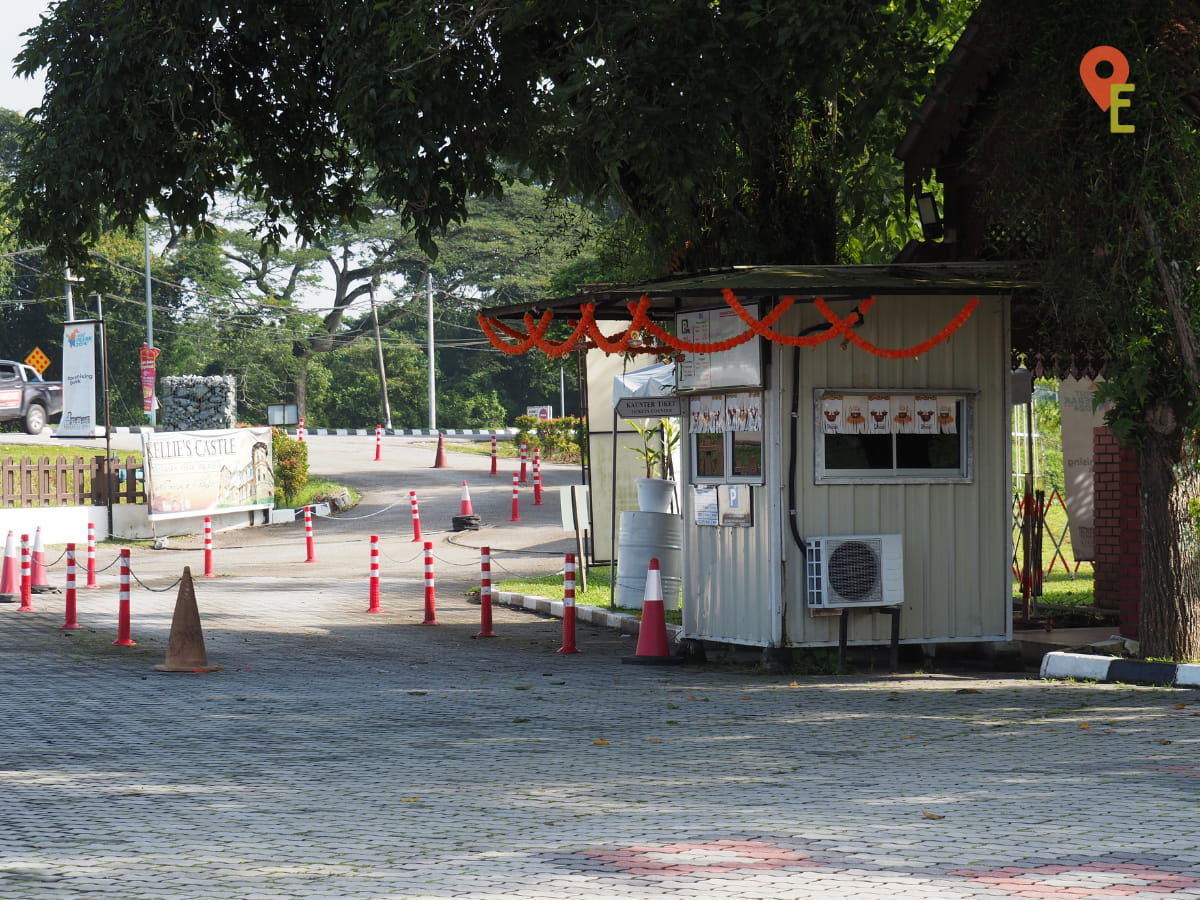
Parking fees do apply here, and it costs RM2 per vehicle.
You can pay these fees right as you drive into the compound. The ticket attendant does check your identification cards and passports so don’t try to lie your way in for cheaper fares.
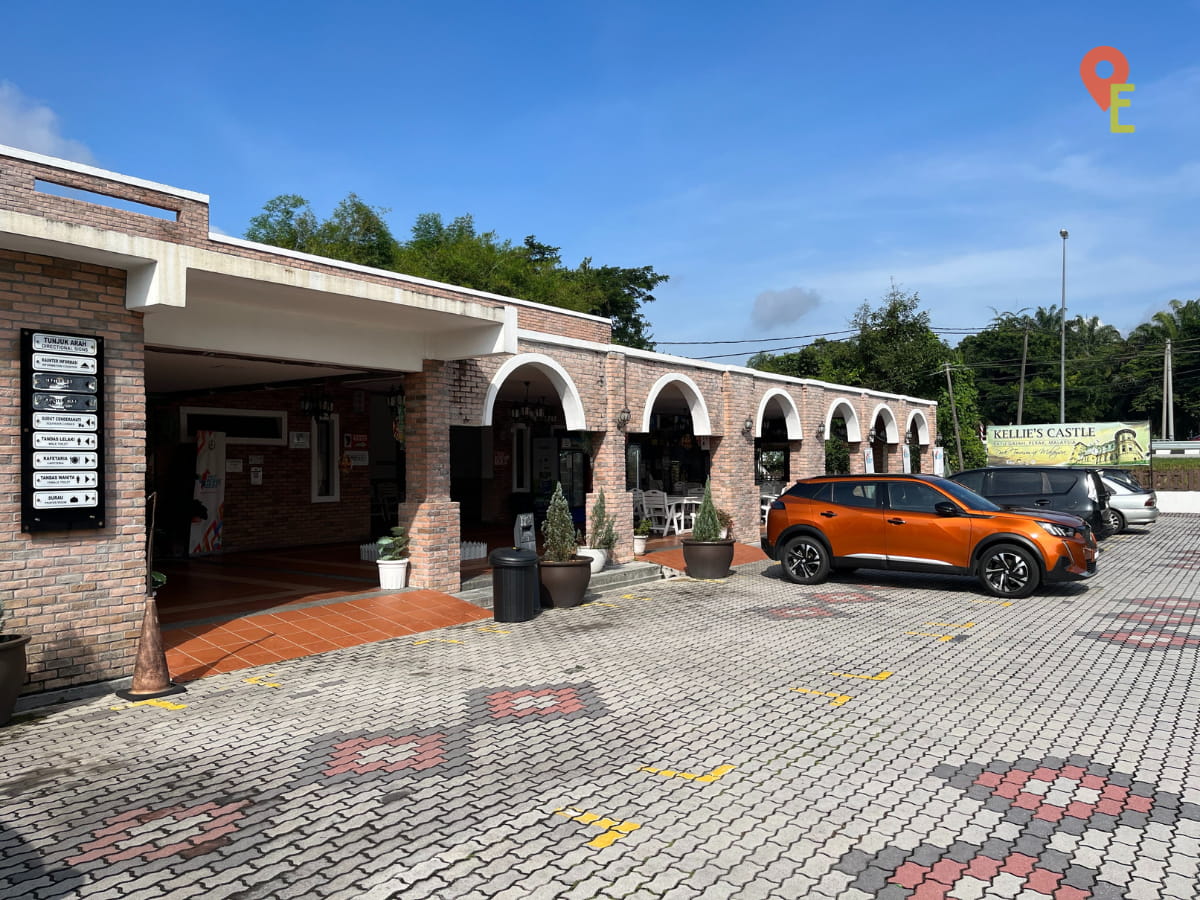
Opening Hours
Kellie’s Castle is open every day from 9:30am to 5:30pm.
We do wish they opened earlier, and we will explain this further down the post.
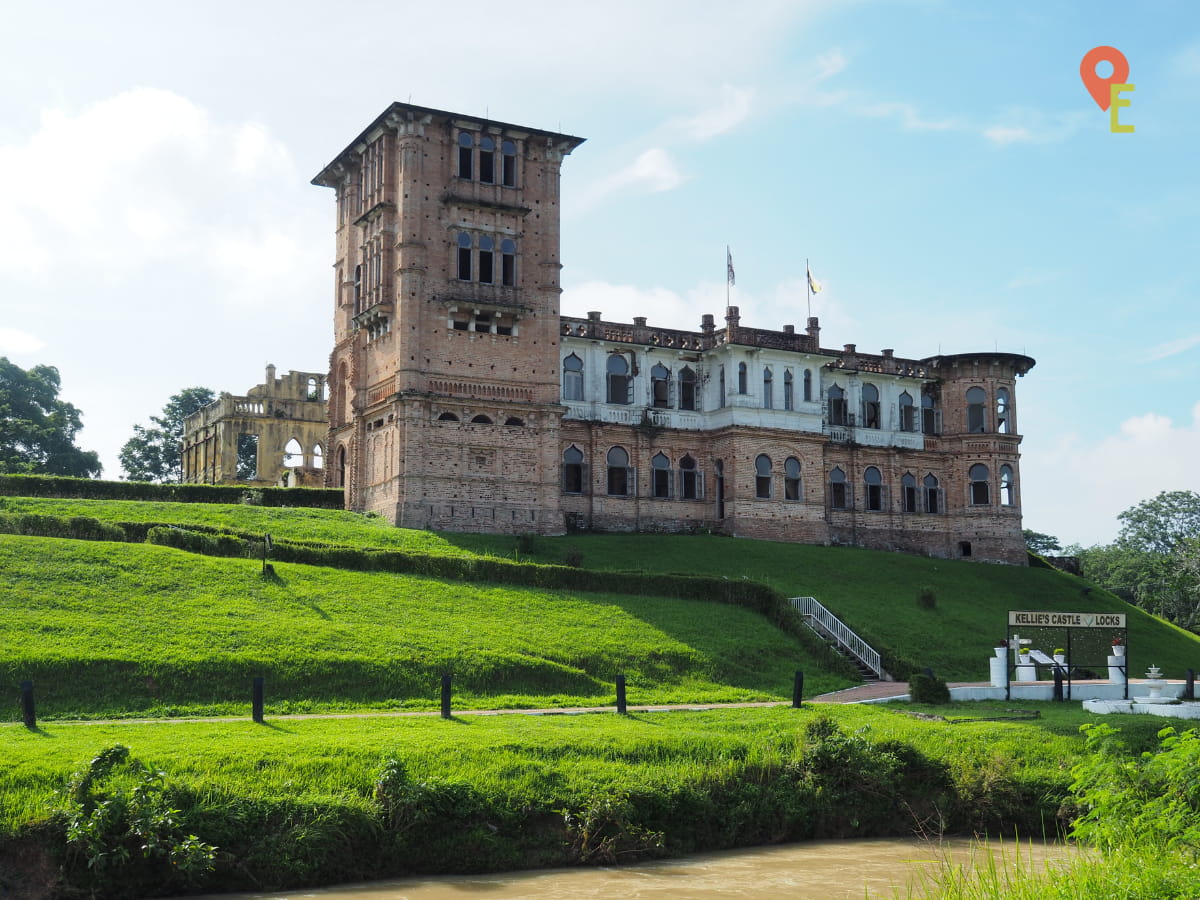
Brief History Of Kellie’s Castle
William Kellie Smith is a Scotsman who came to Malaya for a collaboration on a railway project. It was successful and he tried to expand his fortune further through a few different industries:
He ran a tin mine, a rubber estate, a coffee estate, and a marble quarry. Of these the rubber estate was the most promising.
But both bad timing and financial insecurity eventually led him to sell off two thirds of his land.
If you visit Kellie’s Castle, you can see the ruins of his bungalow, known as Kellas Home. William Kellie Smith lived in it with his wife from 1903 and they had their firstborn, Helen here.
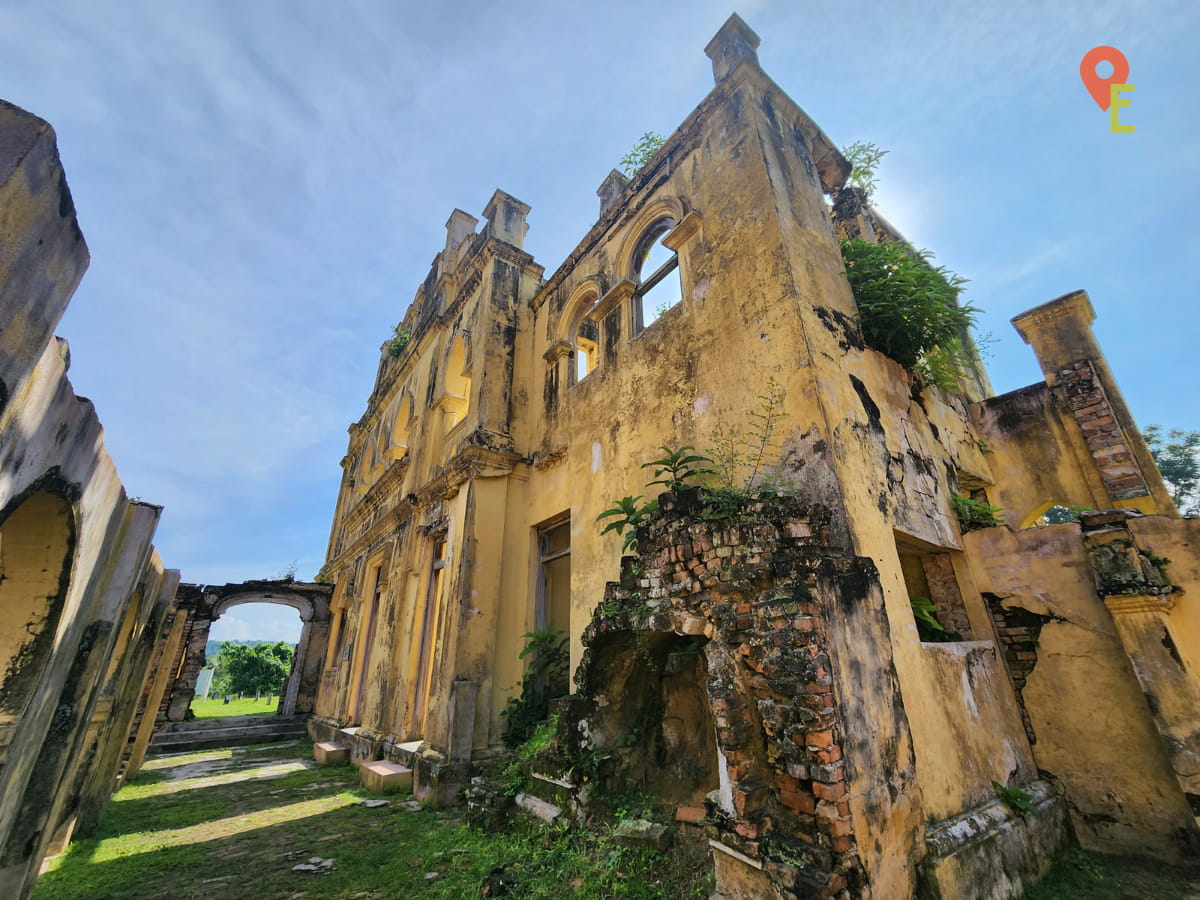
Kellas Home is right next to the much larger Kellie’s Castle. Its construction not long after the birth of the couple’s son, Antony in 1915.
From his original plans for the mansion, there are supposed to be 14 rooms in total.
The architecture of both houses combines Moorish, Indo-Saracenic and Roman styles. You can still see some of the imported marble from Italy in the ruins on the Kellas House.
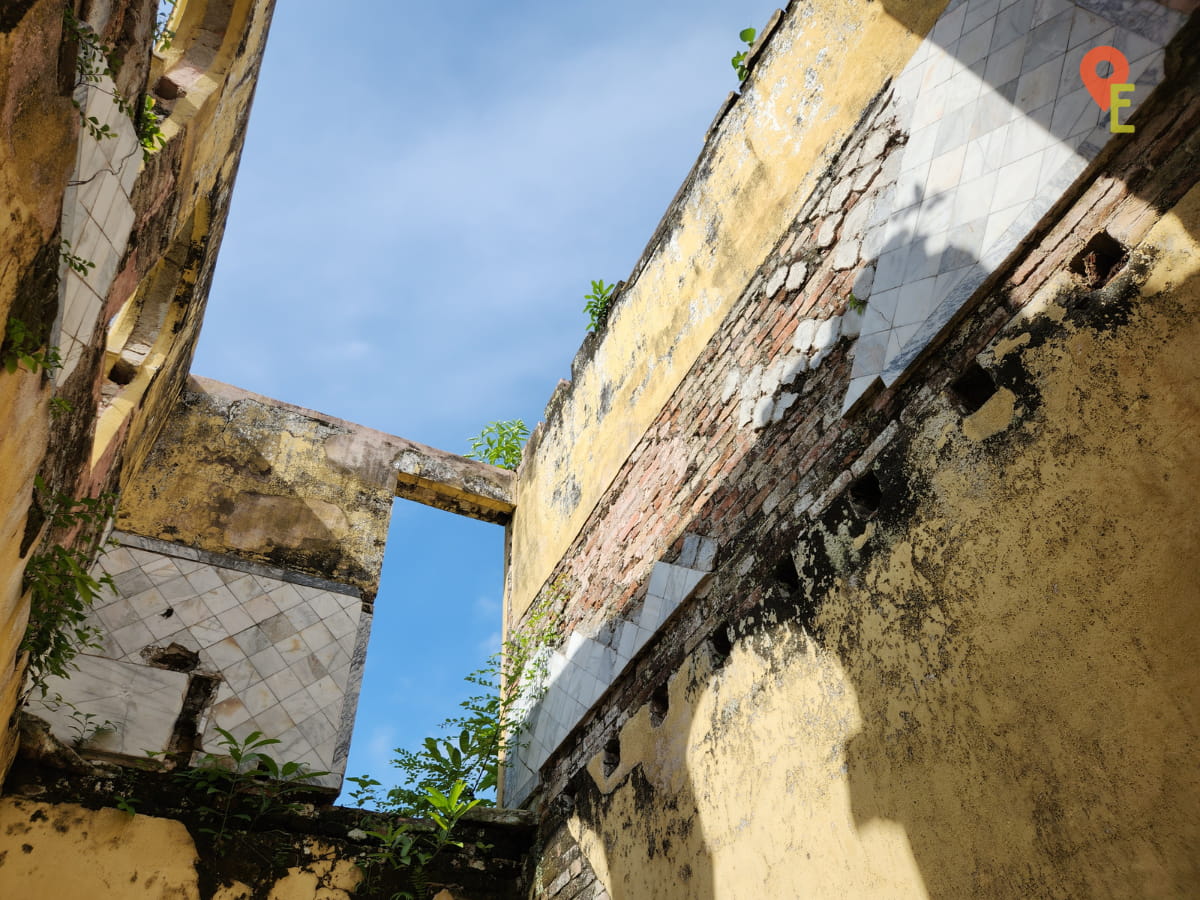
What’s particularly fascinating about the original construction of the mansion is that there is no metal or even nails used.
Unfortunately, the William Kellie Smith died before never got to see his mansion completed because of delays to construction (e.g., World War I and the Spanish flu), and his death from pneumonia.
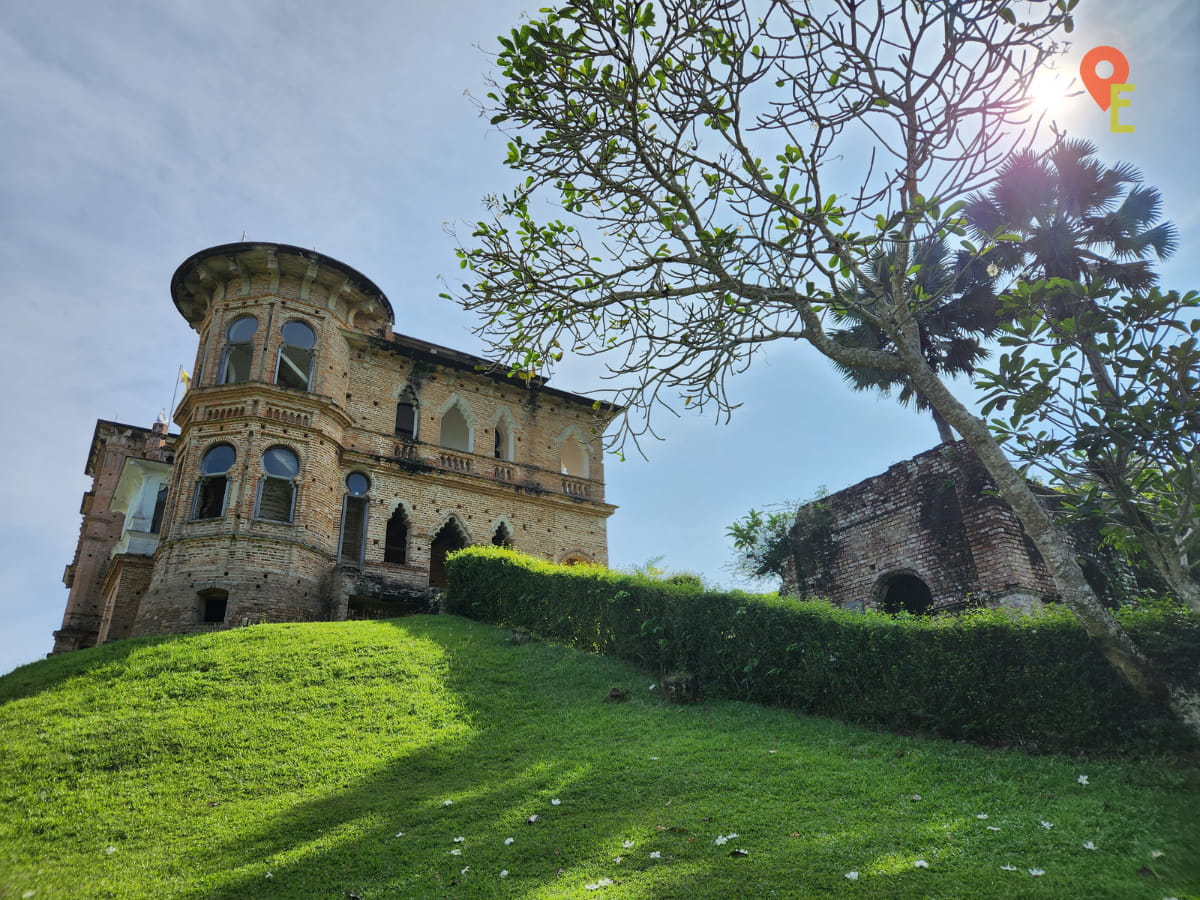
There is a lift shaft in the mansion, but no lift. William Kellie Smith went to Europe to collect it in 1926 but before he could, he met his death.
His lineage continues through his grandson from his son, Anthony (before he too met an untimely death during World War II).
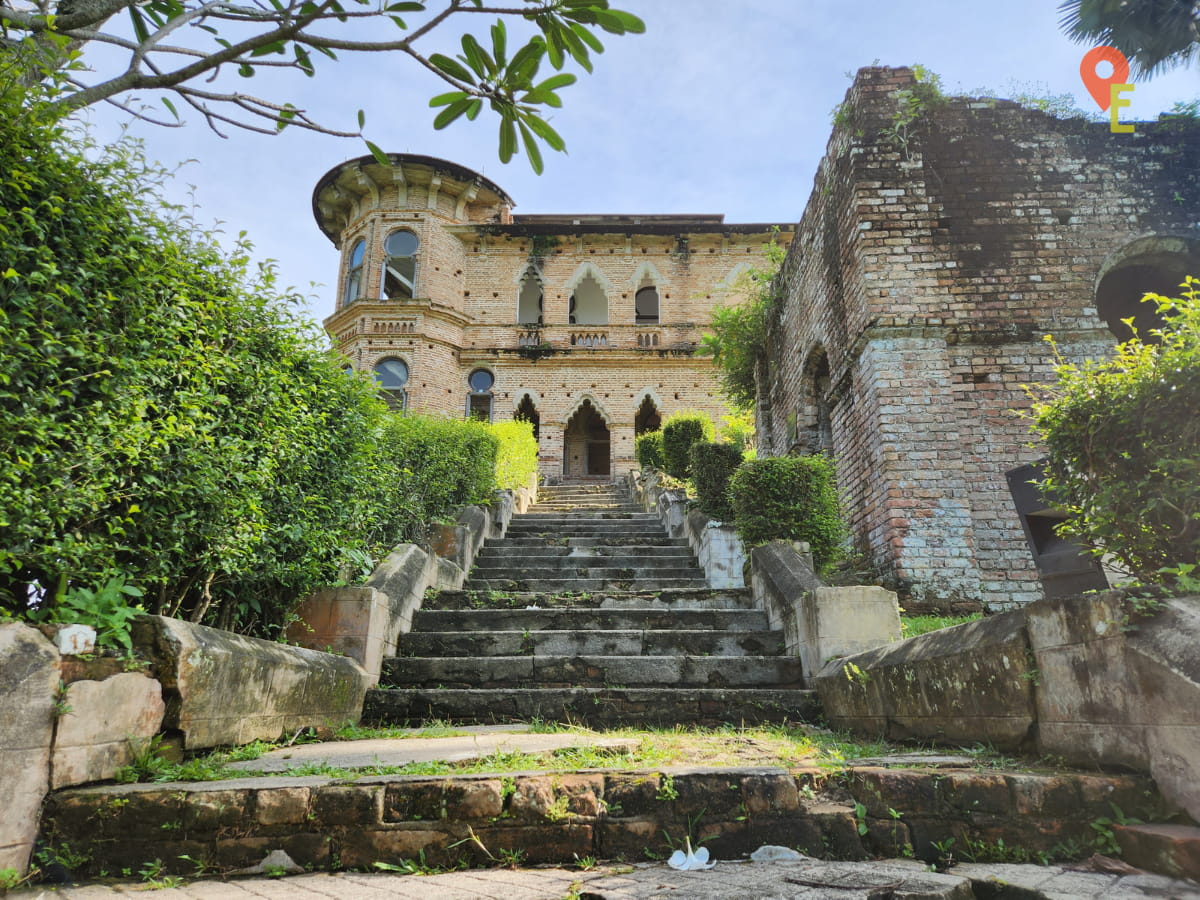
Reasons To Go
Firstly, you won’t get lost here. The car park is open-air and spacious too.
And we love that that there are so many information plaques everywhere. These have interesting facts about the Kellie family and the construction of the castle.
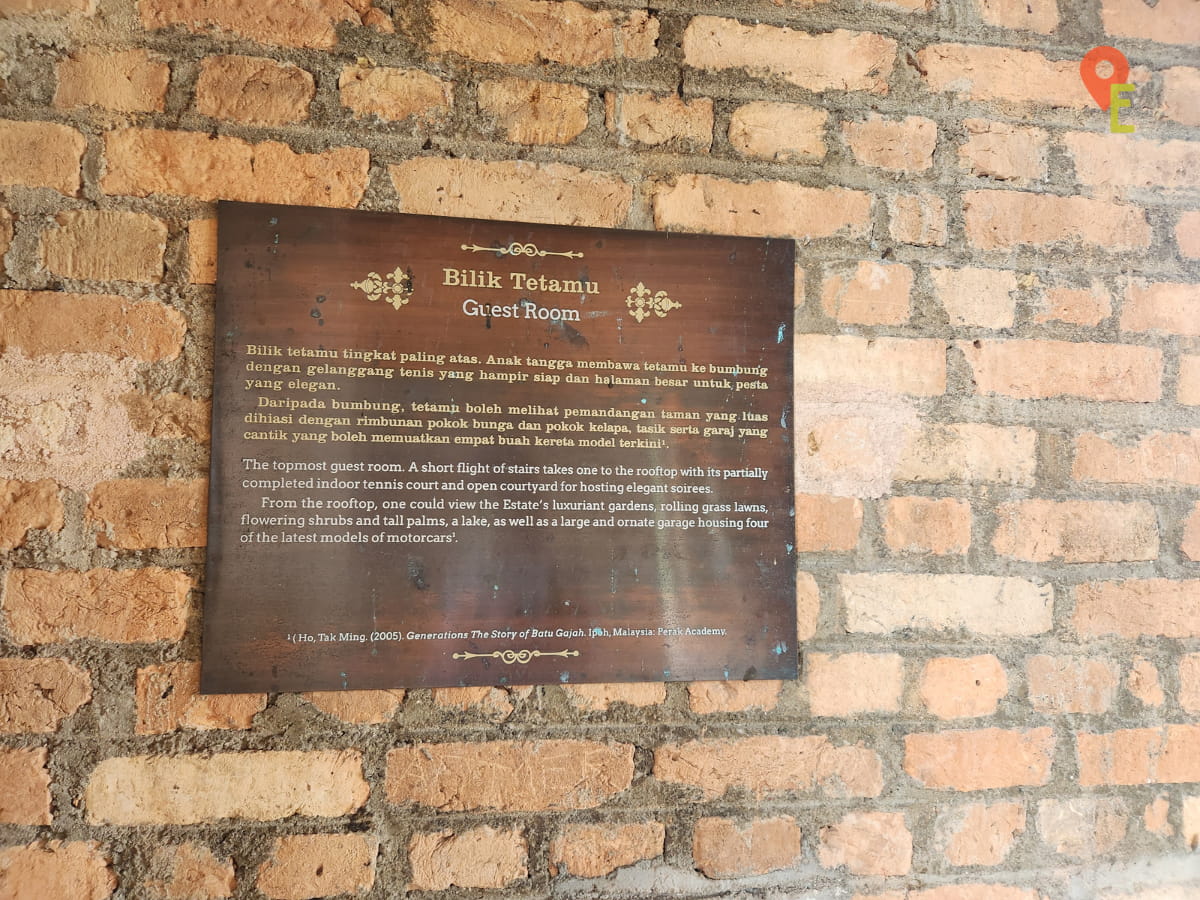
It’s nice that there’s a room decorated to look like their original living room. But you can only view it from behind a grate. Close to this room, there is a lot of information that you can read about the Kellie family.
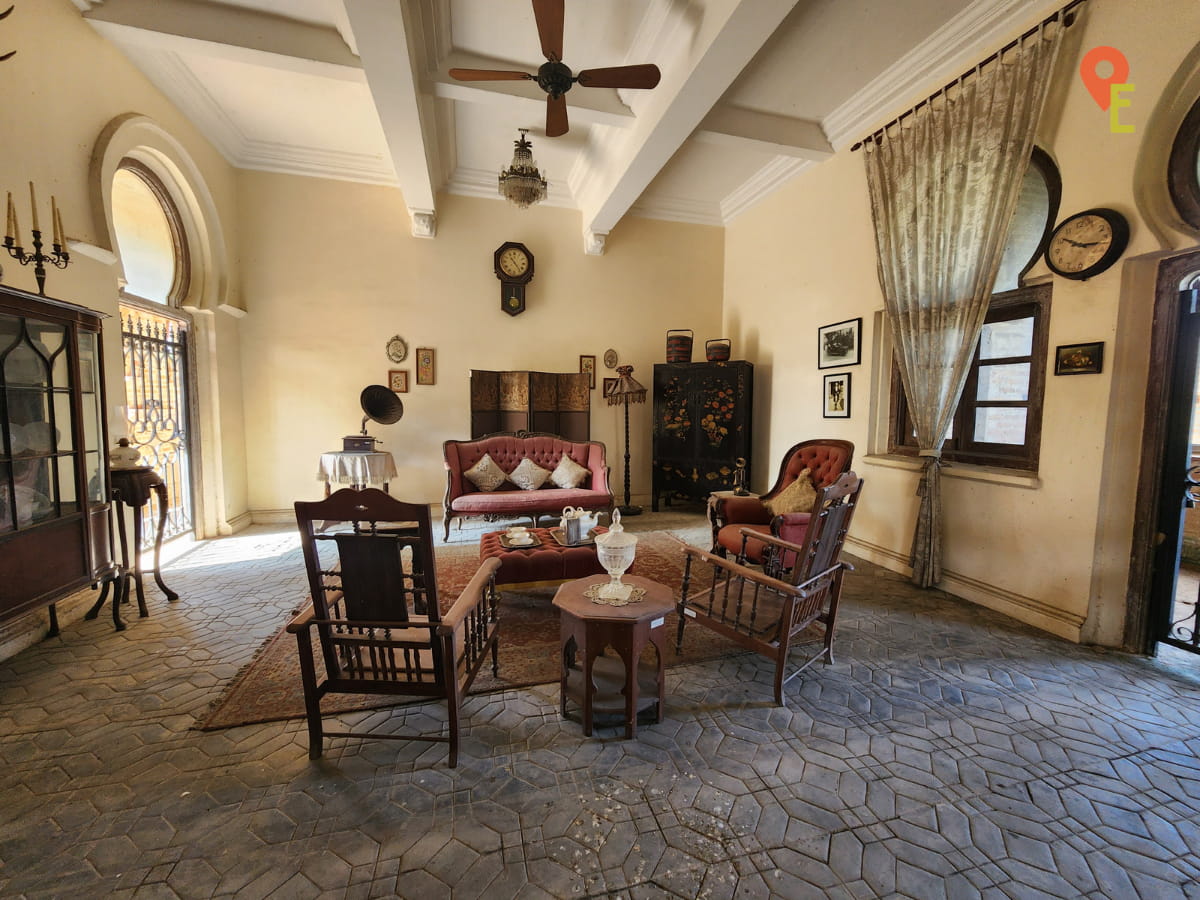
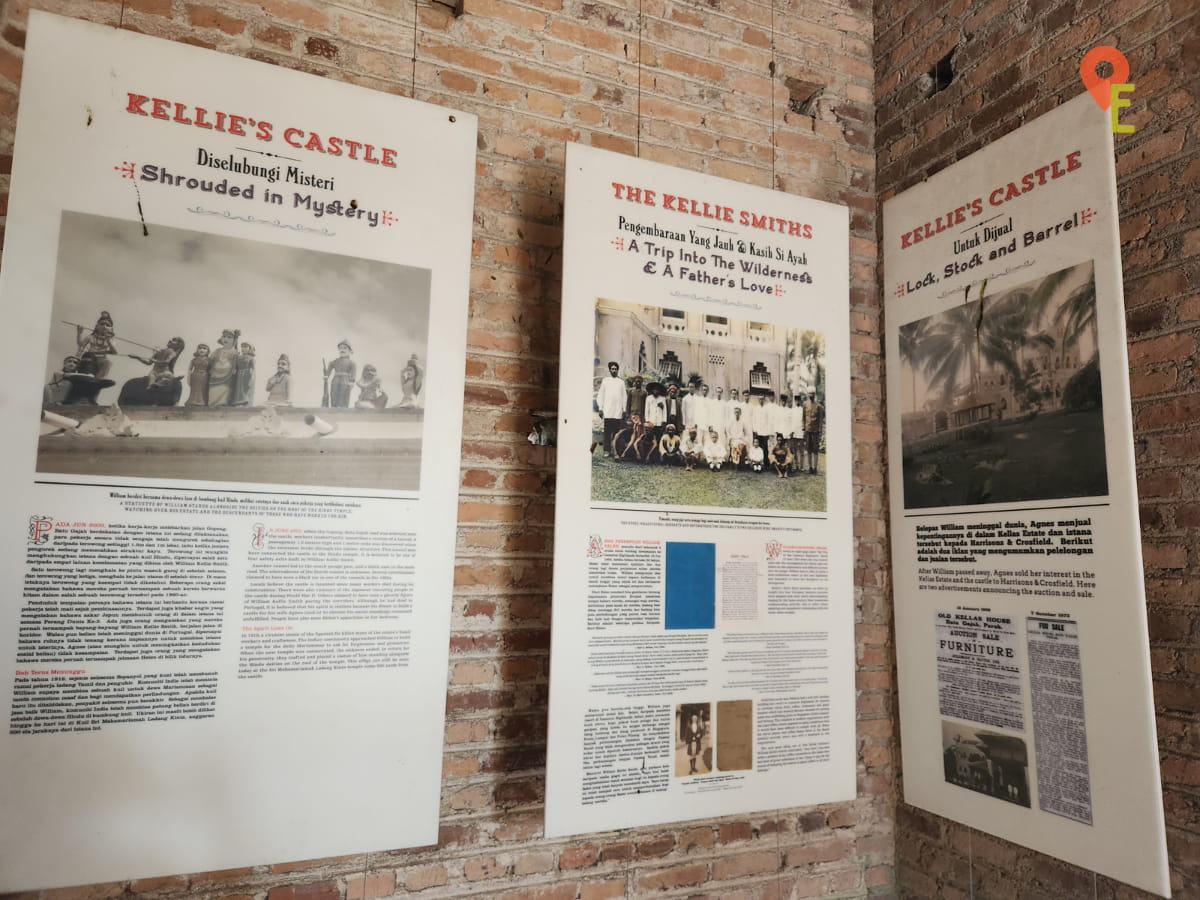
If you don’t like history, it is still fun (and a bit creepy) to check out the different rooms as well as secret staircases and rooms.
Not to mention, the architecture is beautiful with all the Moorish arches. We also noticed little things like different motifs for the windows of the children’s bathrooms too.
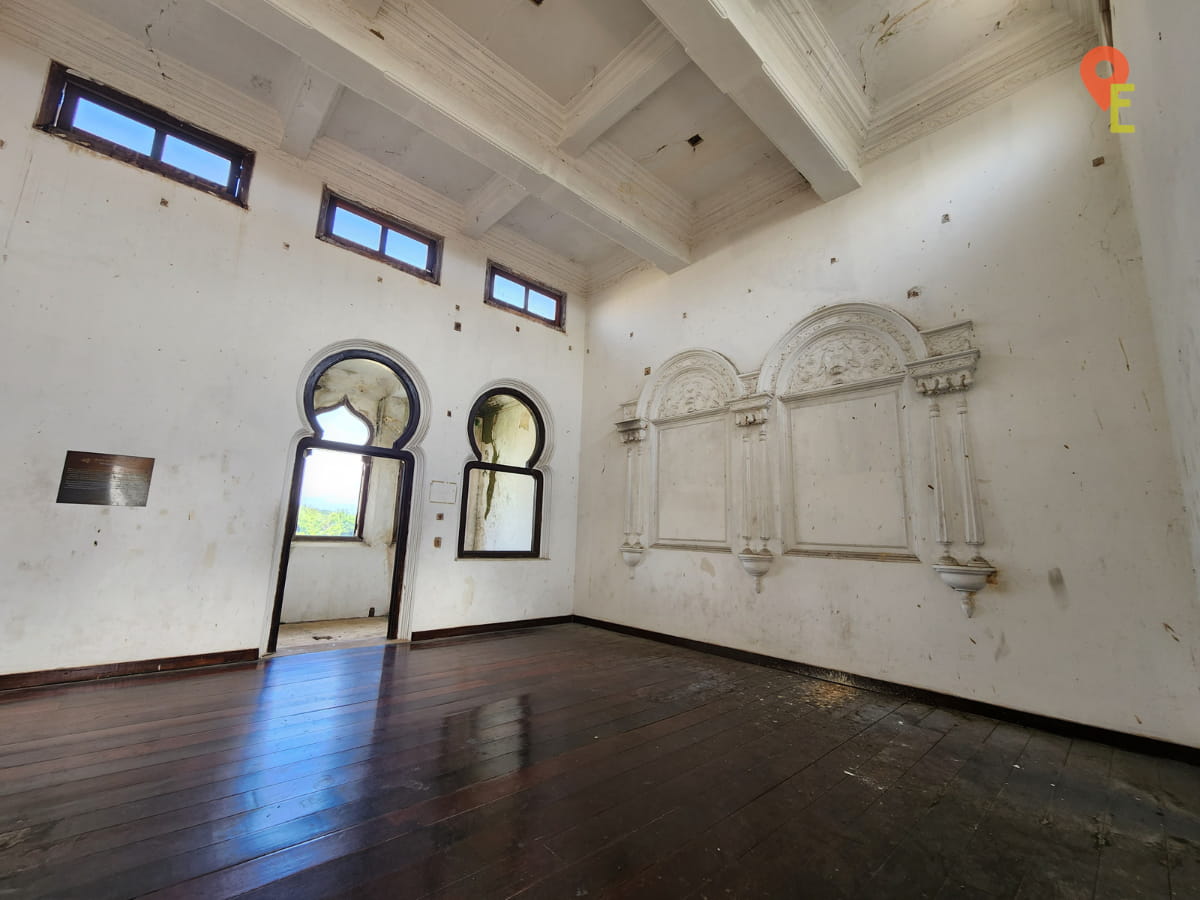
There are old stables out back in the simple but well-maintained gardens. We didn’t stay too long here since it was hot.
We took a lot of photos (more than you see here) and probably spent a good hour exploring the castle and the compound.
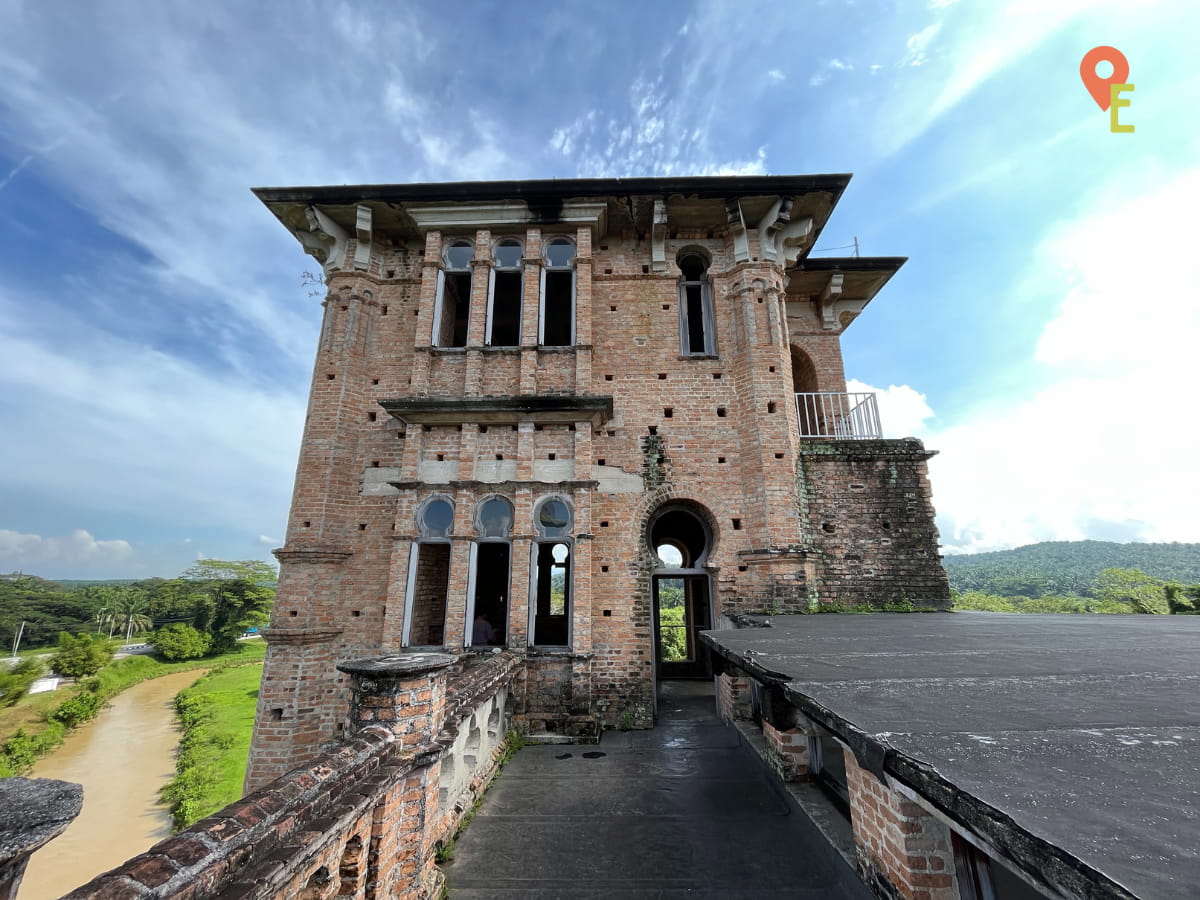
If you climb up to the roof, you can get a 360-degree view of the surroundings which include a palm oil plantation, and the small river (which was swollen during our visit).
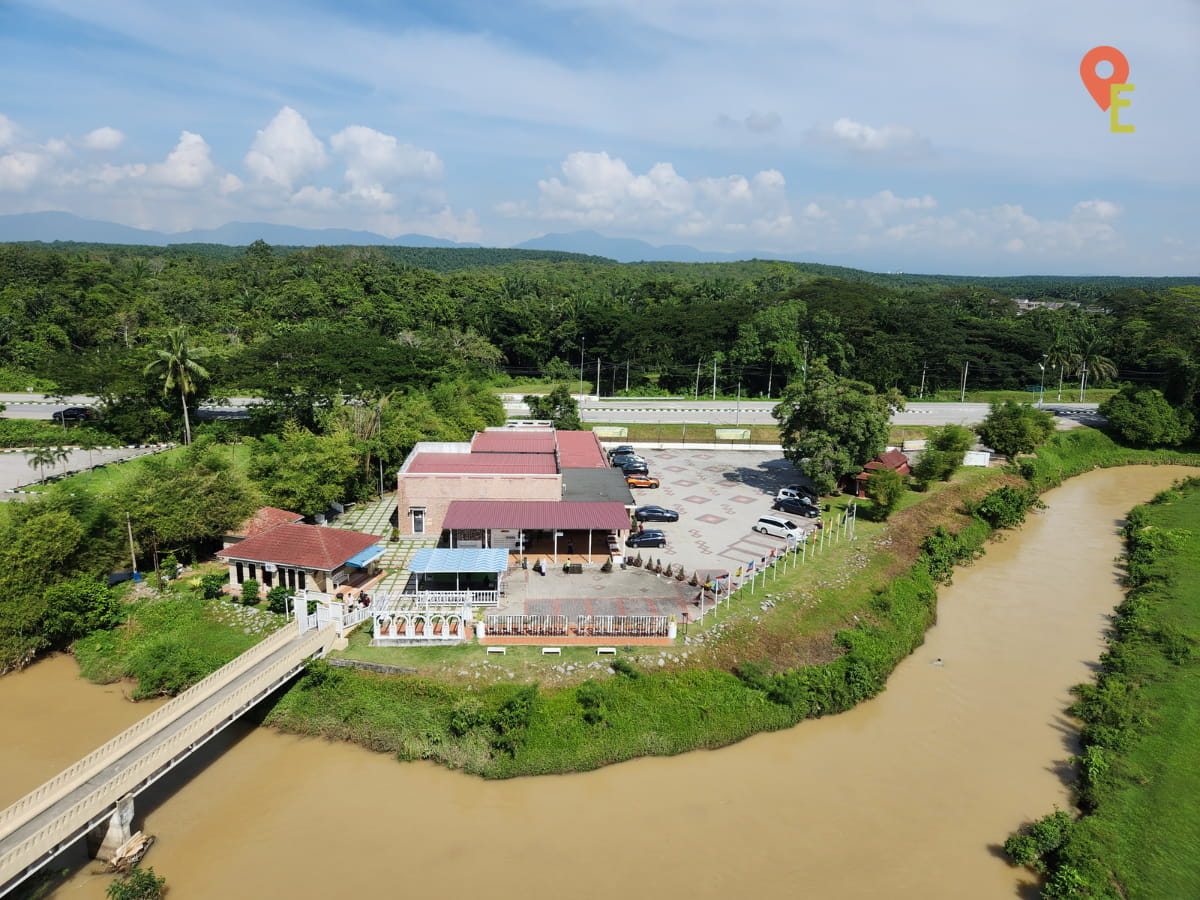
The entire lift shaft can be seen from the roof too.
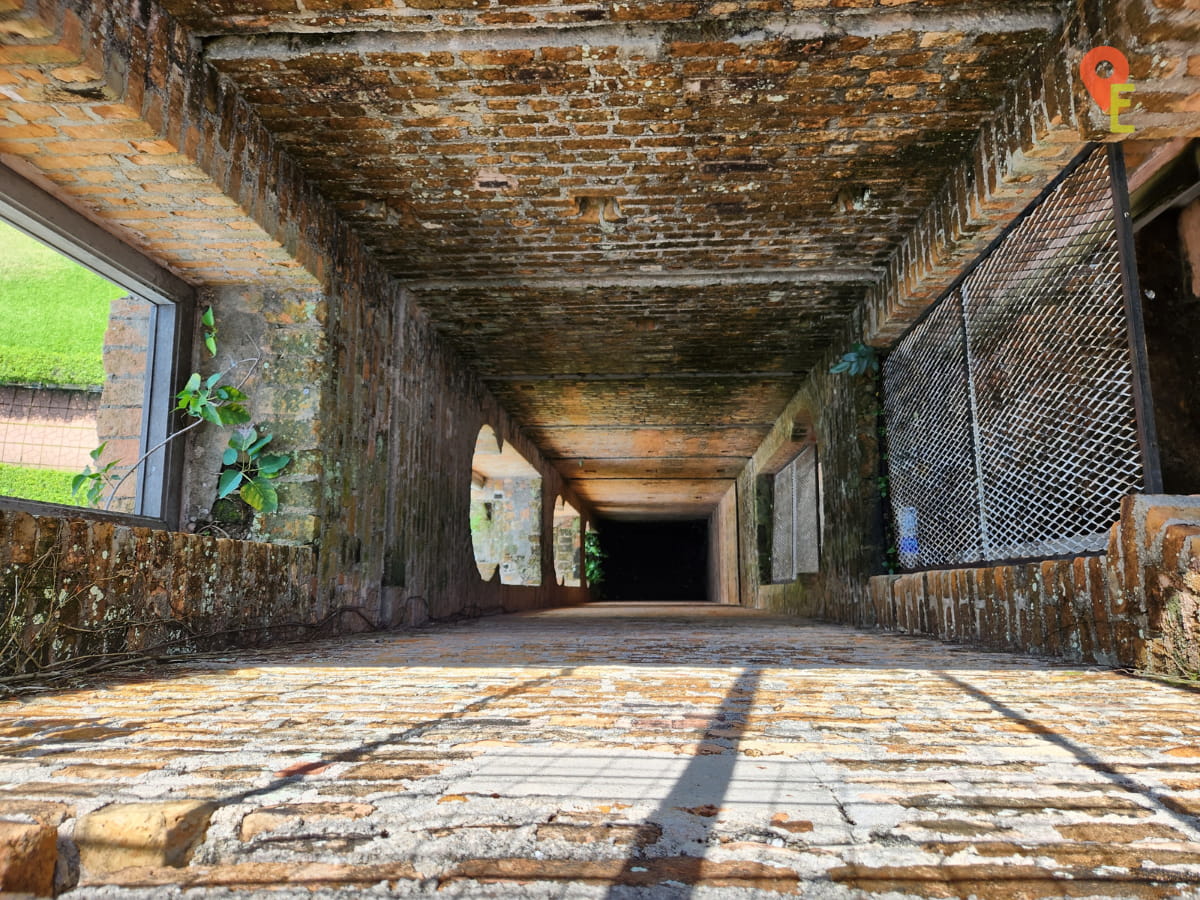
There are no toilets in the castle itself, but there are on the grounds.
Reasons Not To Go
There are no guided tours available here. While the grounds are tidy, maintenance of the building is lacking.
We saw water leaking from the ceiling onto the wooden floorboards. Some parts of the floors do look like they will collapse and there’s no demarcation to keep people from getting hurt either.
The display room had birds nesting inside, and a thick coat of dust on the antique furniture.
If you have anyone with mobility issues in your group, you will find it difficult to access many areas. We can see some ramps but inside the castle, the floors are uneven in places.
Moreover, there are many levels, and the spiral staircases are very narrow and steep.
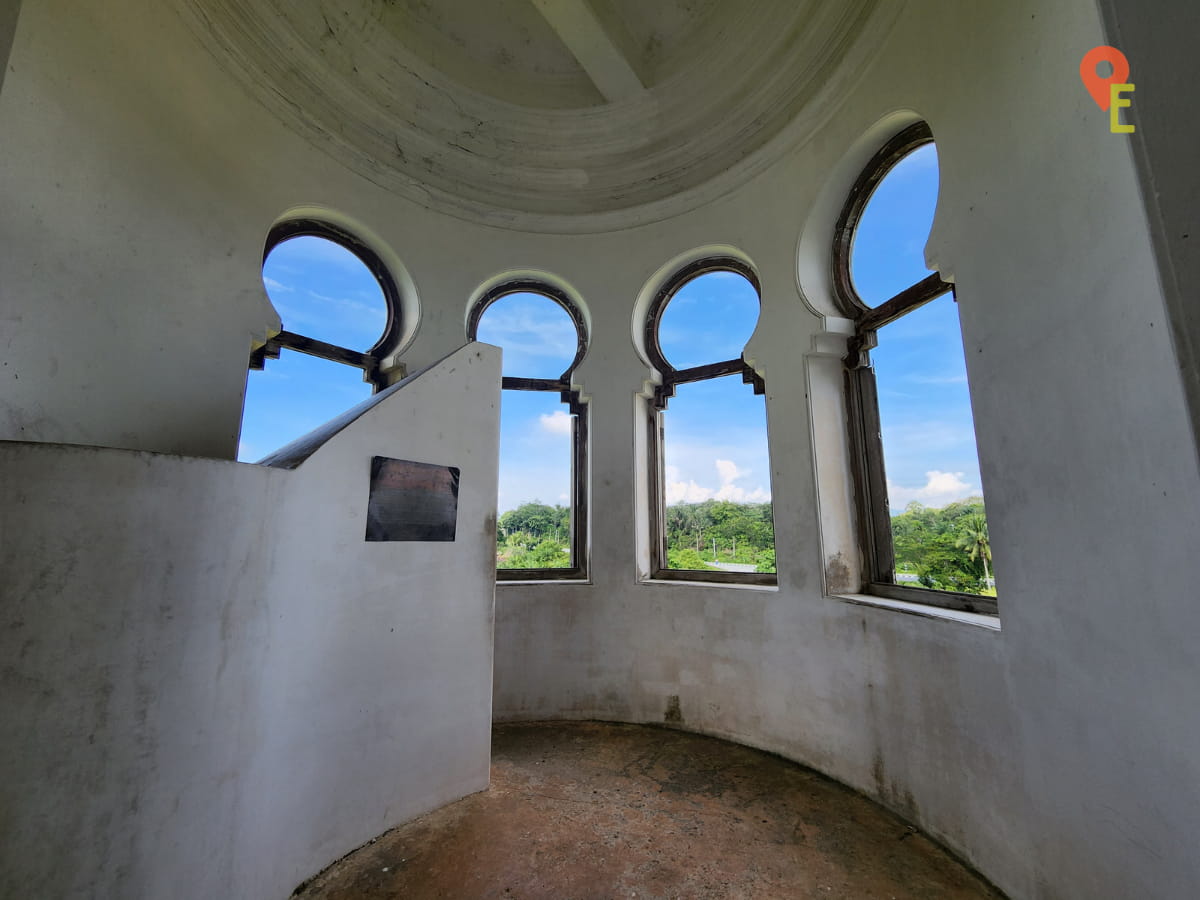
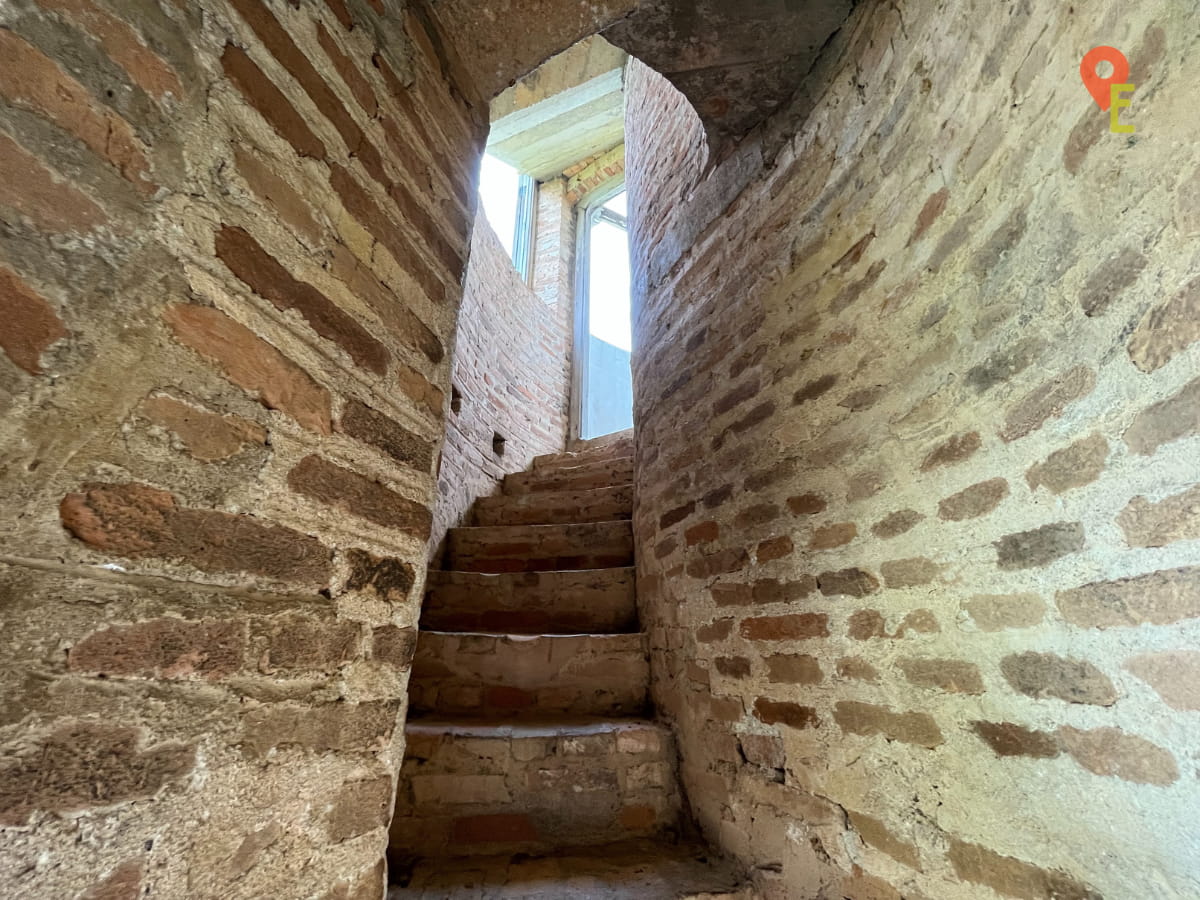
Kids may like playing hide and seek here but there is nothing much else to do. We find the love lock fence in front of the castle to be a redundant (and tacky) addition from our last visit here.
When it comes to facilities, the on-site café is very simple. And this is a wasted opportunity in our opinion. A fancy British-style café may have made more sense and increased the overall appeal of the area.
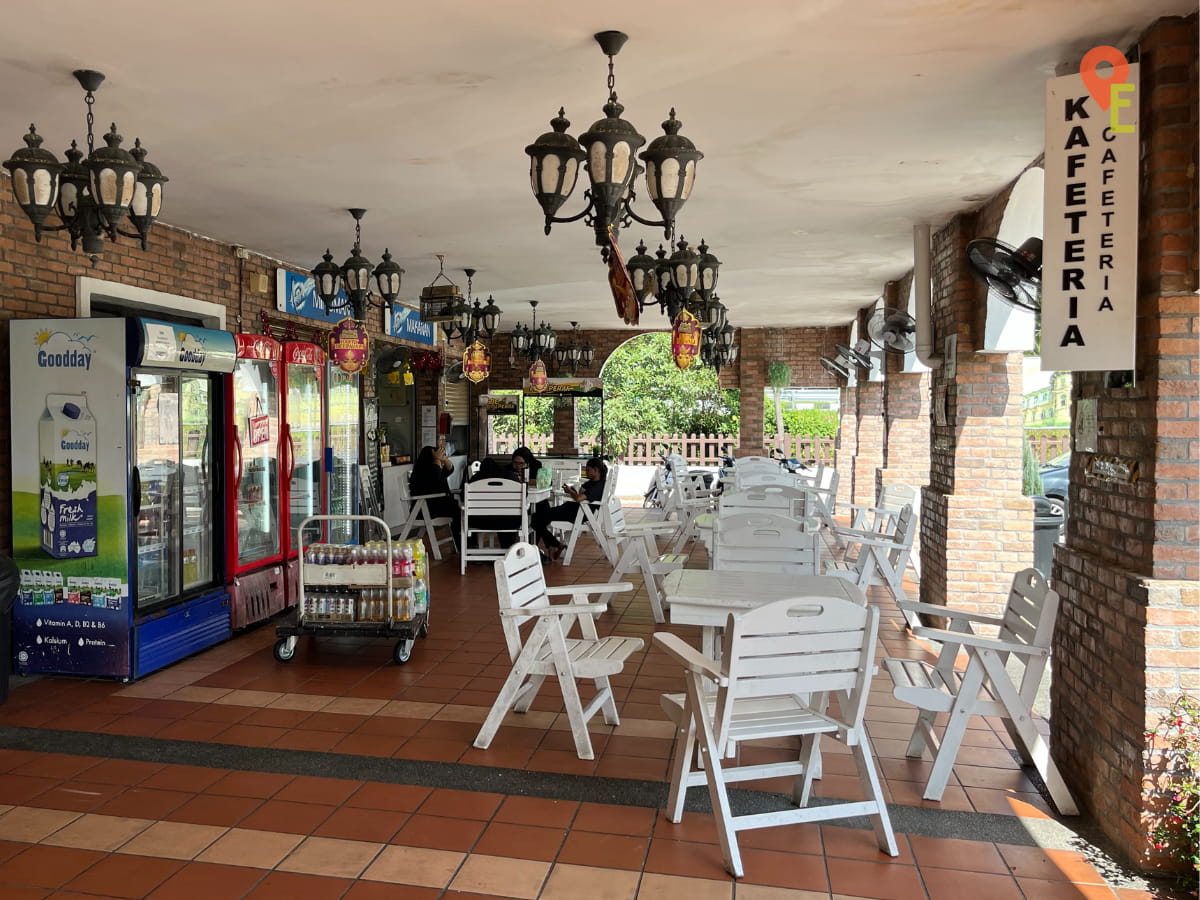
Lastly, it is very hot at Kellie’s Castle. There are no fans, just whatever breeze that passes through the building. And there is no shelter from the sun if you explore the ruins outside.
It would not be so bad in the early morning but since the opening hour is 9:30am, this is not an option.
There is no air-conditioned space at the visitor centre either.
How To Get To Kellie’s Castle
If you’re driving from Ipoh Old Town, it’ll take 40 minutes to reach Kellie’s Castle. There’s no direct bus that goes to Kellie’s Castle.
But you can take e-hailing service from the city to Kellie’s Castle. Although getting back this way will not be as easy.
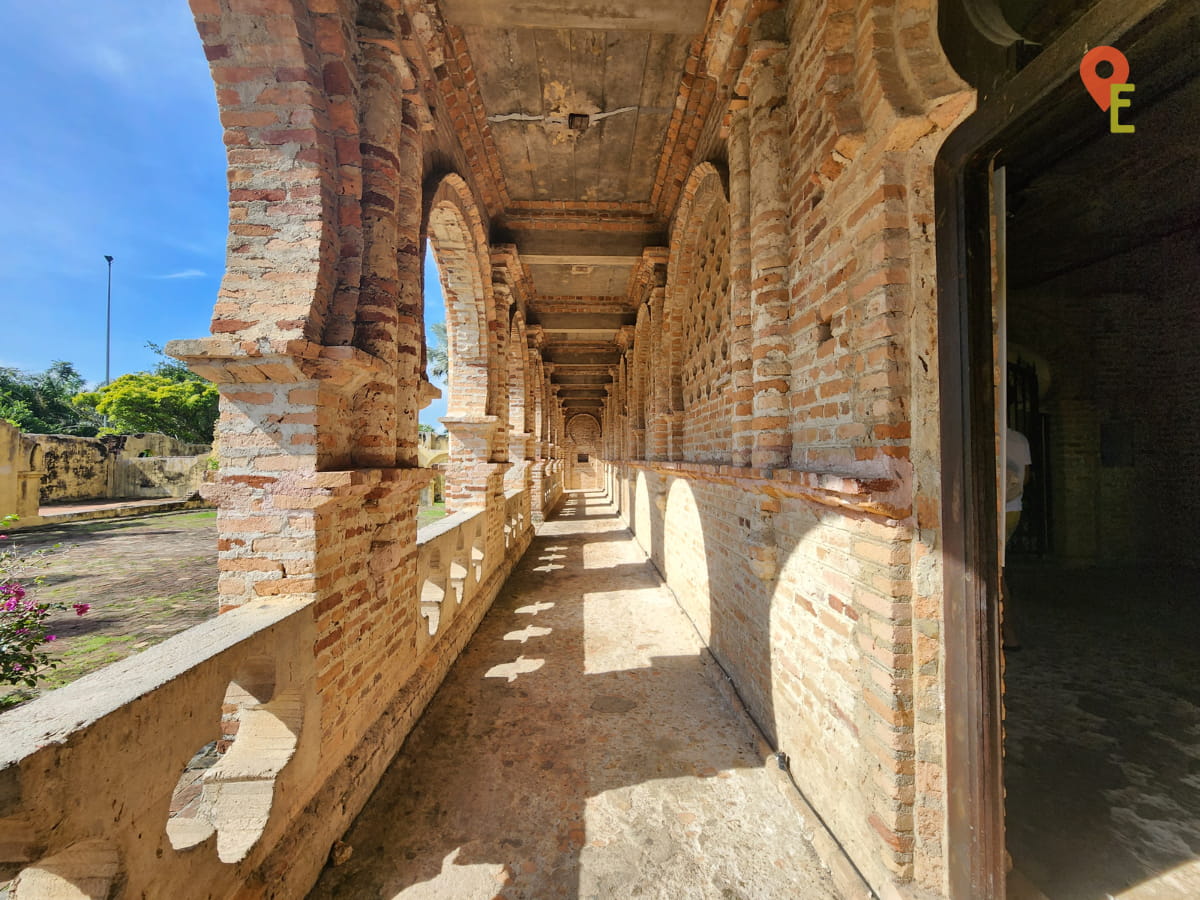
Conclusion
Kellie’s Castle is an interesting place to visit if you’re in Ipoh. Just make sure you’re prepared for the heat.
You might want to eat elsewhere too since there are limited options at the onsite café.
For those that have mobility issues, this is sadly not a place you can fully access with convenience. If you are looking for a place that is wheelchair friendly, we recommend Kek Look Tong Temple.
HOGA Gaharu Tea Valley
It’s a bit of a detour but you will need to use the same road out of Ipoh and through Batu Gajah to get to HOGA Gaharu Tea Valley. This remote tea plantation currently boasts 200,000 agarwood trees. For those that enjoy tea, appreciate herbal medicine, and being outdoors, this place is ideal and quite wheel-chair friendly too.

